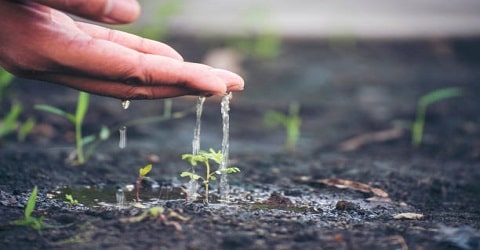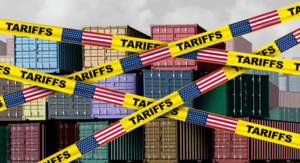
The Key Role of Healthy Soil in Climate Action
The role of healthy soil in climate action cannot be overstated. Beneath our feet lies the silent champion of our planet’s well-being. It’s not just dirt; it’s the foundation of life itself. From cycling essential nutrients to storing water and carbon, soil sustains us all. Yet, human activities like agriculture and urbanization are rapidly eroding this vital resource.
Africa, in particular, faces a crisis, with vast swaths of land degraded and desertification rampant. However, recent initiatives, such as the African Union’s soil health summit, offer hope. By aligning national goals with sustainable practices and investing in land restoration, we can turn the tide, ensuring a future where healthy soil thrives, and with it, humanity.
Role of Healthy Soil in Climate Action
In the global crusade against climate change and environmental degradation, an unsung hero lies beneath our very feet: soil. Often overlooked and underestimated, soil is the bedrock of life on Earth. It harbors a rich tapestry of life forms, from microscopic bacteria to earthworms, all working harmoniously to sustain its vitality.
Here are five key points illuminating the profound significance of soil in combating climate change and nurturing our planet:
Read More: The Role of Green Growth Averting Climate Change
Table of Contents
1. Foundation of Life
Soil, often overlooked as mere earth, is actually the bedrock of terrestrial ecosystems. It acts as a crucial repository for essential nutrients, fostering the growth of 95% of our calorie-providing crops. Furthermore, it functions as a natural sponge, retaining water and enhancing resistance against droughts, an increasingly vital attribute amidst rising climate unpredictability.
The role of healthy soil in climate resilience becomes evident here, as it not only retains water but also sequesters carbon, mitigating the impacts of climate change. Soil’s significance transcends its apparent simplicity, profoundly impacting agricultural productivity and ecosystem stability.
It’s the unsung hero beneath our feet, silently supporting life’s intricate web and serving as a bulwark against environmental challenges. Appreciating soil’s multifaceted role underscores the urgency of sustainable soil management for ensuring food security and ecological resilience in an ever-changing world.
Read More: How Rising Geopolitical Risks Threaten Global Sustainability
2. Carbon Sequestration Superpower
Healthy soil, often underestimated, serves as a potent carbon sink, quietly storing significant amounts of carbon dioxide beneath its unassuming facade. Laden with organic material, it adeptly captures carbon, halting its escape into the air.
Remarkably, soil locks away three times the carbon dioxide compared to all land-based vegetation combined, marking it as a pivotal player in worldwide endeavors to combat climate change. Its role extends beyond mere support for plant life; it stands as a crucial element in the battle against rising greenhouse gas levels, showcasing the intricate interplay between nature’s systems and humanity’s sustainability pursuits.
Moreover, the role of healthy soil in climate regulation cannot be overstated, as it acts as a foundational element in maintaining carbon balance and mitigating the effects of global warming.
Read More: Role of Economic Growth in Averting Climate Catastrophe
3. Under Siege
The paragraph underscores the dire state of soils globally due to human-induced activities like agricultural expansion, deforestation, and urbanization. These actions degrade soil quality, compromising its vital role in sustaining life and worsening environmental deterioration. The role of healthy soil in climate is paramount, as it serves as a carbon sink, sequestering carbon dioxide from the atmosphere and mitigating climate change.
According to the Food and Agriculture Organization of the United Nations (FAO), nearly 40% of the Earth’s land surface is already degraded, highlighting the pressing need to combat soil erosion and degradation. This alarming statistic underscores the urgency of implementing measures to preserve and restore soil health.
Failure to address these issues risks further environmental degradation and threatens food security and ecosystem stability on a global scale. Urgent action is imperative to mitigate the escalating damage to our soils and safeguard the planet’s future.
Read More: Fair Taxing Policies for Global Polluters
4. Africa’s Imperative
Across Africa, soil degradation stands as a pressing challenge, with 65% of fertile land depleted and desertification consuming 45% of the continent’s expanse. The region grapples with the consequences of rapid population expansion, intensifying the demand for sustenance and exacerbating the conversion of natural habitats, loss of biodiversity, and erosion of soil. The role of healthy soil in climate is paramount in this context, as it not only supports agricultural productivity but also acts as a carbon sink, mitigating climate change effects.
These interconnected issues underscore the critical need for intervention. The urgency cannot be overstated as the delicate balance of ecosystems faces unprecedented strain. Addressing this crisis demands holistic approaches that prioritize sustainable land management, conservation efforts, and innovative agricultural practices to safeguard Africa’s ecological integrity and secure the livelihoods of its inhabitants.
Read More: Unlocking Amazon Conservation Beyond Bioeconomy
5. A Call to Action
The African Union’s Fertilizer and Soil Health Summit in Nairobi underscores the critical link between healthy soil, climate resilience, and sustainable progress. Central to its success lies in fostering collaboration across sectors, engaging stakeholders, and mobilizing investments for land restoration initiatives continent-wide.
This summit serves as a platform for African leaders to address pressing environmental challenges and advance collective strategies for long-term resilience. By recognizing the role of healthy soil in climate resilience as a linchpin for mitigating climate change and driving sustainable development, the summit emphasizes proactive, collaborative approaches to safeguarding Africa’s natural resources and securing its future prosperity.
A ten-year action plan was adopted, prioritizing organic fertilizers and harmonizing national efforts with global agendas on biodiversity, climate action, and combating desertification.
Read More: Collective Climate Actions: The Urgency of Global Collaboration
Bottom Line
Soil emerges as humanity’s strongest ally in combating climate change and environmental decline. Through prioritizing soil health and deploying effective conservation techniques, we unlock the immense potential beneath our feet to protect our planet for posterity. By recognizing the pivotal role soil plays in ecological balance, including the role of healthy soil in climate, we can fortify our efforts to mitigate the impacts of climate change and preserve biodiversity.
Through sustainable soil management practices, we not only enhance agricultural productivity but also sequester carbon, mitigating greenhouse gas emissions. In essence, by nurturing our soils, we cultivate a sustainable future for generations to come.







